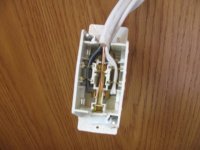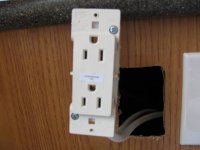Another $25 or $30 dollars worth of quality receptacles would not break any of these RV builders. Where they run into trouble is they would actually have to train some of the employee's on the correct way to install them.
Quality control does not cost a company money, it makes money for the company. The problem is as I have stated before we (the customer) put up with this crap and think we are doing great.
I agree somewhat but, after adding $25 or $30 bucks for outlets, should it end there? Probably not so where does it end? There are many many things manufacturers can do to improve quality, but at what cost?
I have no idea what it takes to run & maintain a business like Heartland's or any other RV manufacturer and be profitable. Much like running a family, we have to take shortcuts here & there to make ends meet.
Employees want more money, employee benefit costs are through the roof, suppliers are raising prices, raw materials are going up, utilities are raising the rates for electric, sewer and water, property taxes and insurance and on & on.
Bottom line for me is, Heartland is as good or better than any manufacturer in this class/price range of RV's. I agree it wouldn't take much to improve the things we've seen as a problem for years. The coax connections, plumbing leaks and fresh water fill are a few that come to mind. BUT, as you said, we see these issues in all brands. What are we, as the consumer, supposed to do?

I could spend more money on a better built RV but I don't have the money. I'm cutting back to make ends meet.




